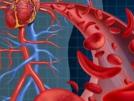World Thyroid Day 2023: Symptoms Of Hypothyroidism And Hyperthyroidism
By Lokmat English Desk | Updated: May 25, 2023 12:05 IST2023-05-25T12:05:38+5:302023-05-25T12:05:38+5:30

The butterfly-shaped thyroid gland is situated at the front of the neck, under the voice box. Diseases of the thyroid gland are among the most abundant endocrine disorders worldwide, second only to diabetes. 1 in 10 people around the world will suffer from some form of thyroid disorder.

Thyroid diseases can affect more women than men. When thyroid gland makes too many hormones, it is called an overactive thyroid or hyperthyroidism.

On the other an underactive thyroid where the gland doesn’t make enough hormones is referred to as hypothyroidism. Both of these imbalances can lead to a range of symptoms. On World Thyroid Day, here's all you want to know about the date, history, significance of the day apart from facts, types of thyroid disorders and symptoms of the disease

World Thyroid Day was first observed in 2007 by the members of the Thyroid Federation International. This global healthcare day was created to honour European Thyroid Association (ETA) which was formed in the year 1965.

The two most common types of thyroid disorders are hypothyroidism (underactive thyroid) and hyperthyroidism (overactive thyroid).

Hypothyroidism occurs when the thyroid gland does not produce enough thyroid hormones. Symptoms include weight gain, fatigue, dry skin, hair loss, among others.

An overactive thyroid gland could lead to hyperthyroidism. This happens when thyroid gland produces an excess of thyroid hormones. Common symptoms of the condition are weight loss, increase in appetite, increased heartbeat, anxiety, irritability, and heat intolerance.

Women are more likely to develop thyroid disorders than men.

Hypothyroidism is more common in elderly while hyperthyroidism affects younger people more.

Thyroid disorders can affect metabolism, energy levels, weight, heart function, fertility, mood, and cognitive function.

More than half of those with thyroid disease are unaware of their condition.Expecting mothers with undiagnosed thyroid issues face an increased risk of miscarriage, preterm delivery, and developmental problems in their children.If not treated early, thyroid disease can even cause heart disease, osteoporosis, and infertility.



















